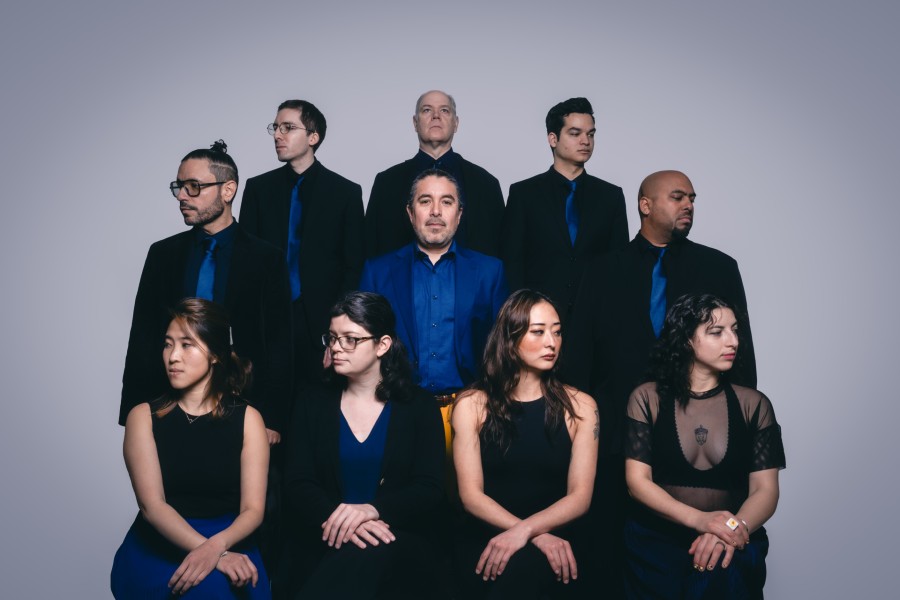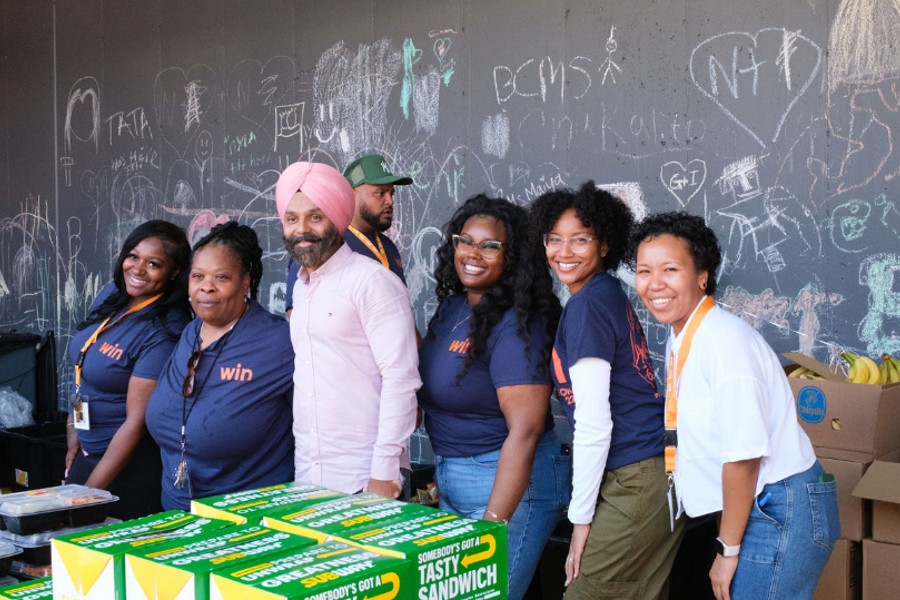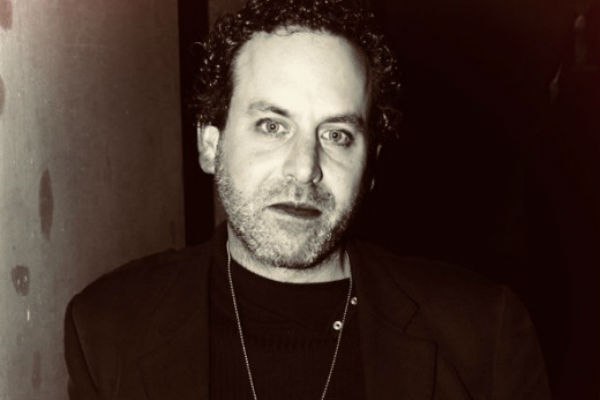
By Robert Walker
Harlem, New York is undoubtedly one of the most famous neighborhoods in America, and its list of famous visual artists, authors, poets, musicians, thespians, politicians, and civil activists known the world over, is what keeps Harlem’s innovative affluence alive.
Filmmaker, nephew of Gene Wilder, Jordan Walker-Pearlman is one of Harlem’s own, and his works in the film have made him one of the more notable “Hollywood” directors. Jordan is proud to call Harlem his hometown for so many reasons because growing up there afforded him the opportunity to experience a mix of cultures steeped in a rich history that made it an ideal place for nurturing a budding visual artist. A place where the struggle for all of America’s idealism of greatness is juxtaposed to the reality of racism and murder we are experiencing at the hands of the very institutions we pledge allegiance to. Born out of that struggle comes profound works in the arts, in commerce, and civil discourse that permeates pop culture globally.
I recently had an opportunity to interview Jordan about his life growing up in Harlem, his recent op-ed piece in the Los Angeles Times titled “Beyond #OscarsSoWhite, Hollywood Needs To Confront Historic Racism On The Big Screen, (which he now understands has encouraged the film academy to do an exhibition on the subject matter), and his current film work called, “Drum Kisses, The Jazz Detective of Striver’s Row” a series about the life of a genius Detective in Harlem.
Q&A with Jordan
Robert Walker: Thank you Jordan for taking the time out of your schedule to chat with me and allowing our readers to learn more about you and your film works Jordan. You are writer, director, producer, and founder of MoJo films. What would you say you enjoy the most with the process of filmmaking, and why?
Jordan Walker-Pearlman: I consider it a whole experience: creation at 24 frames a second. I’ve never really been able to separate the different aspects of the process in my mind. When I’m writing I see the finished film, when I’m directing I’m still writing, in the editing room, I’m miserable and start from scratch and fall in love again. I love the blend of sometimes being alone and sometimes surrounded by 100 people. My only deficit in experience (except for the several years I took a break to concentrate on politics) has been the infrequency of my work, which is now increasing because of having co-founded MoJo Global Arts.
My only issue with the beauty and exquisite pain of making cinema have been its refusal to include everyone in the dance and the insistence on keeping opportunities for people of color and female filmmakers limited while continuing to perpetuate on-screen racist imagery (what I call “cultural violence”). Still, my deep love for movie making has never left me.
RW: What would you say is the area of filmmaking you least like, and why?
JWP: The area I least like is where too much “business” and “industry” invade peoples thinking about which films should or shouldn’t get made. When people who aren’t really cinematically literate are put in a position to hire only people that look like them behind the camera and in leading roles but want a medal for hiring one African-American executive or supporting player. The area I like least is the continuing systematic racism on and fear of organic inclusion that continues to permeate decision making and limit the world’s access to beautiful American movies that have to struggle to get put into the universe.
RW: When did you know for sure that being a filmmaker would be the career you would pursue? And, what was your very first film project?
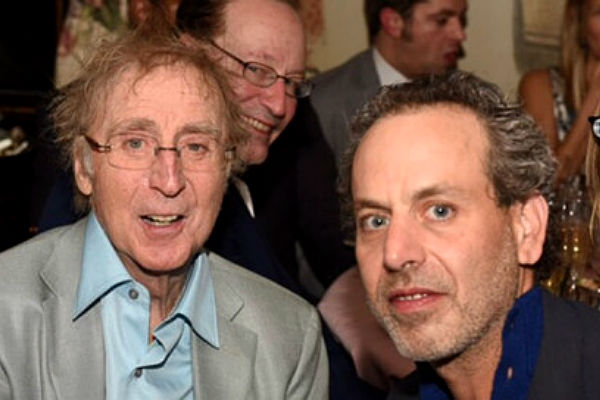
JWP: I knew when I was about six years old I wanted to be a filmmaker. In a family with so many mixes and different identities, I couldn’t find my way in the world and so I decided to create my own world, which is what Art is on some level. Because of my relationship with Gene (Wilder), I had access to film sets and so it did not seem distant or unattainable.

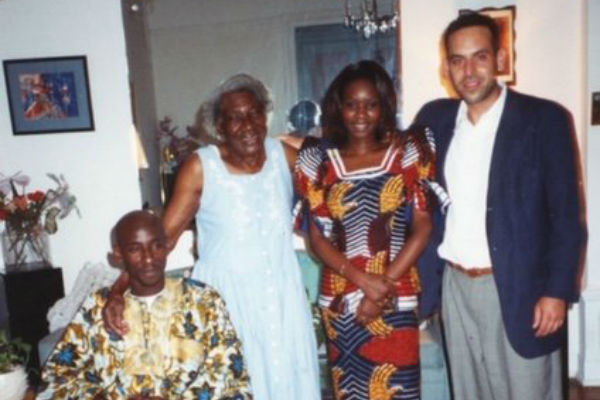
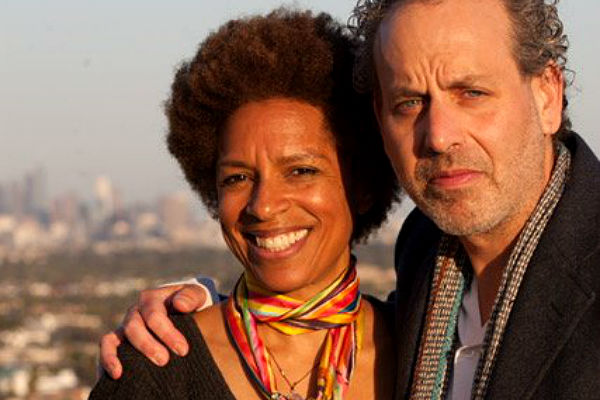
My Grandmother liked to tell the story that she said to me when I was very little “if you don’t start acting right Jordan what’s going to happen to you?” and I said, “I’ll become a Director.” Not sure if that was Adele Walker (my Grandmother) urban legend or not.
I can’t say for sure what my first film was, but the first I remember was a comedy short film called “True Innocence” I made and eventually was seen on the Nickelodeon Network. I think I was 12 or 13.
RW: When you go to the movies, what is your favorite genre to see up on the big screen? What was the last movie you saw?
JWP: I look forward to when we’ll be able to go to the movies again. I usually watch in binges. I gravitate the most toward dramas, globally and American but I don’t limit myself to just that. I’ll also screen a classic film I’ve loved at least once a month. The last film I watched was “Uncorked” on Netflix which has some very fine performances and was about two favorite subjects of mine: wine and family. I am also doing a show called “Trace Vineyards” about an African-American multi-millionaire who buys a vineyard hoping it can become a family business (he’s estranged from his children).
I conceived it a decade ago for Billy Dee Williams to star in, but the network that wanted it asked me to change the lead to a white actor so I said no thank you…..I also just watched the Pavarotti Documentary directed by Ron Howard, “Who Really Killed Malcolm X” co-directed by my friend, Phil Bertelsen.
Yesterday I watched “The Assassination Jesse James by the Coward Robert Ford” which is one of the better constructed American movies of the past few years. Also, “The Man Who Killed Don Quixote” by Terry Gilliam, had me crying.
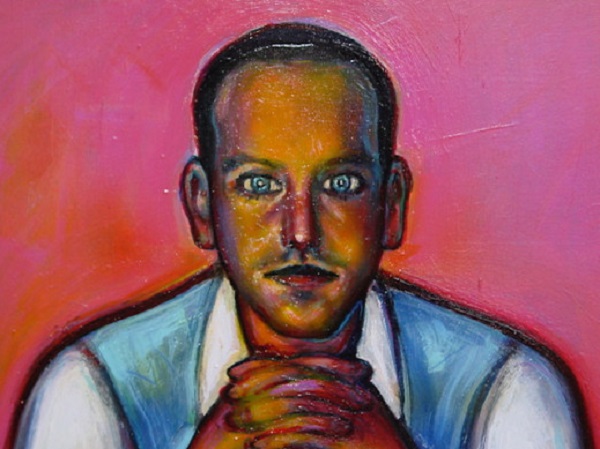
RW: How much does making a film impact your family’s life. Do you retreat to a man-cave somewhere in the house for days on end when working on creating a project?
JWP: I think it’s changed a bit for me. I write in spurts, usually three hours at a time so I used to do that and then go out to dinner. During filming, I’d usually run home after a meditate on the day with a glass of wine and make notes for the next day. If someone like Hill Harper, who is my closest friend, is working then we will go out to dinner often after filming. Filming is a different rhythm. Editing and Writing are more solitary. I’m married now and my wife Elizabeth is also a writer/producer (“The Fighting Temptations,” “Jumping The Broom,” “She’s Gotta Have It”-the TV show). So she will retreat into her home office to write and I’ll be in my writing and we will take short breaks to talk. Especially since sheltering in place means, I don’t spend several hours at the Production office right now. This situation mainly affects the dog, Ziggy, who has to decide which of us to pee in front of to register his displeasure at not being paid enough attention to.
RW: I gotta tell you, one of the very first movies that I saw as a kid, and that made me fall in love with films and wanting to work in the industry, was ‘Willie Wonka and the Chocolate Factory’, starring the late and wonderfully talented, Gene Wilder. Tell our readers, for those who don’t know this, who Gene Wilder is to you, and what was your relationship like with him?
JWP: Gene was my co-parent. He was biologically my Uncle, but from a very early age he was a big part in my family of raising me. I would spend time alone just he and I in Los Angeles during parts of the summer and winter. Along with my Grandmother, he had the most profound and direct impact into how my personhood and personality evolved, not to mention its what led me to film making. We remained close—with a parent-child bond, and I was holding his hand when he transitioned.
RW: You did a short film (documentary) about Gene Wilder called, ‘Gene Wilder: Loved, Remembered’. How special was that for you to do, and was it sort of cathartic in a way?
JWP: In some senses cathartic, in other senses doubled down the pain. The reason for that short film was Mel Brooks called me about what we were going to do for a memorial and we waited some time-about 9 months after Gene had passed and Mel and I co-hosted a large gathering at the Writers Guild of America. We decided instead of a standard memorial clip I should go into the editing room and cut together what I thought were some of the best scenes of Pop’s career plus I wove in some personal photos and music. That’s really what it is, but it affected people and so it ended up being shown more.

RW: You have worked with some of Hollywood’s most talented actors, from Billie Dee Williams to Hill Harper, and Rae Dawn Chong to Phylicia Rashad, to name just a few. Is there one actor, and one actress, let’s say on your bucket-list, of actors to direst or produce in a film, who are they, and why?
JWP: I will presume this question is confined to living actors. I almost directed Sasheer Zamata, I cast her in a movie called “Ghetto Plainsman” that got canceled at the last minute. She’s a unique talent who reminds me in some ways of Gilda (Radner) and in other ways Eartha Kitt (40 years pre-Boomerang). I also auditioned an actor (who’s also an activist) Kendrick Sampson and he gave one of the seven or eight great first impressions of an actor I’ve ever had. I’d like to work with both of them. To push the imagination further I’d love to do one scene with my childhood mentor Sydney Poitier, and Mel Brooks and Harry Belafonte all of whom I also knew as a kid through Gene. I’m not sure what the scene would be, but you’d have three transcendent minds moving at the speed of light.
My greatest blessing really is that so many gifted actors I’ve worked with are willing to go back into the breach with me again, trust more one more time, and for that, I’ve been lucky.
RW: I understand you are working on TV series(?) involving your old neighborhood of Harlem, New York, one of the most iconic neighborhoods in American pop/culture. First, when did you live in Harlem, and can you share a little about the premise of this project? Is it something you will be bringing to a major network or streaming in the near future?
JWP: Harlem is my beloved community. It’s not just where I lived, it’s where I was given life. I was baptized at First Calvary Baptist Church at 9 days old. My Grandmother, an African- American woman from Louisiana, first lived off Convent Avenue and shortly a few years later at 640 Riverside Drive.
I lived part of the time with her through the ’70s, ’80s, and ’90s and then returned frequently. I went to Sunday School at the Church my whole childhood. I was married at First Calvary (sadly, my Grandmother had already past but she made it to January 2009 at the age of 97 but a number of the older Mother Board members showed up).
To answer your question about the show, its about a brilliant and enigmatic Detective in Harlem and uses that platform as a way to examine over 100 years of the community’s history, its called “Drum Kisses, The Jazz Detective of Striver’s Row.” That’s all I can tell you at the moment as there will be some announcement surrounding the show soon.
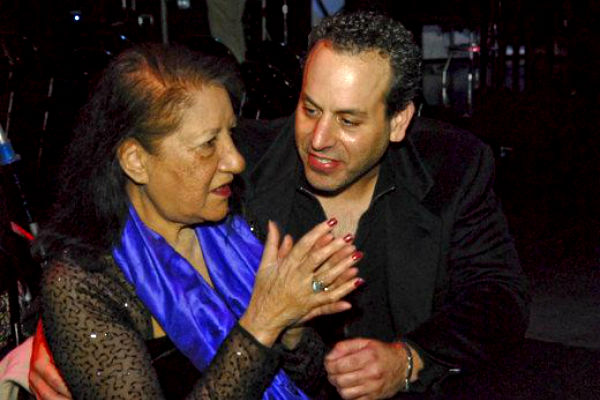
RW: In addition to this work, what other projects are you working on, and are there any social media sites where readers can see more about you and your work?
JWP: I am editing my feature film meditation (it’s not really a documentary) on Jazz Artists called “The Jazz Griots, Liberty In Cadence.” I was collaborating with a close friend and two-decade collaborator Wallace Roney, the iconic Jazz Trumpeter. He passed of COVID-19 in March 2020 at only 59. That’s a loss I’m reeling from. Ironically Wallace was going to also work with me and the Music Producer David Kahne for the score on my next narrative movie “The Requiem Boogie,” which is about loss. I’m also doing a show about the Urban Youth Racing School in Philadelphia (everyone should check out their site and as for social media I’m the worst. My website is mojo.film.
RW: I never like to close out an interview without asking this of such accomplished people: If you were asked to give the commencement speech for say the NYU Tisch Film School’s graduating class, what would your words of encouragement be for those future filmmakers?
JWP: Now that you’ve learned all these valuable rules, forget them. Your value as a filmmaker and a human being is so much bigger than what anyone can attempt to confine you within. I can’t wait to see what you come up with. May you be limited only by your own imagination and soul.
RW: Thank you for your time Jordan. We look forward to seeing your next work as you have a great knack for touching the pulse of what people want to see.
Robert Walker is an award-winning writer who graduated from Colgate University. After moving to Atlanta, Georgia he worked at the Centennial Olympic Games. As a freelance Public Relations Consultant, Robert’s clients included the NBA’s only licensed female designer of women’s sports apparel, Deborah Williams of Her Game 2; The Sickle Cell Anemia Disease Association of America; Gospel Artist, 2009 NAACP Image Award nominee, Omega Bugembe Okello; famed Dancer and Actress, Trina Parks, Filmmaker, Nicole Franklin, Jazz Singer, Freda Payne and actresses, and Dr. Tommie Tonea Stewart, to name a few. He has been featured on HubPages, Gospel Innovation, SHEEN Magazine, Black Star News, Harlem World Magazine and HBCU Connect. He is a recipient of the Silver Award at the World Fest Film Festival, he worked with Tony-nominated award-winning actress, Sheryl Lee Ralph, and her ‘The Sheryl Lee Ralph D.I.V.A. Talk Radio Show’. Today, he works as a film writer/producer, along with colleague and author, Olivier Stephenson, telling the remarkable untold stories of pioneering women of color who have impacted our nation’s popular culture. https://about.me/robertprguy
Read more Robert’s World here.
Photo credit: 1) Jordan Walker-Pearlman. 2) Gene Wilder and Jordan Walker-Pearlman. 3) Jordan has fond memories of his childhood, pictured here with his Grandmother in Harlem. 4) Jordan with his Grandmother and some of their neighbors at the apartment in Harlem in the 1990s. 5) Jordan and wife. 6) Jordan painted by Billy Dee Williams. 7) Jordan with his wife Elizabeth at the book party for the audio release of Gene Wilder’s novel “Even Dogs Learn How to Swim,” which Jordan directed. 8) Actress, Gabrielle Union, and Jordan on a tour of South Africa for their film, “Constellation”. 8) Jordan with the great Jazz Singer, Sathima Bea Benjamin, when he MC’d an event at The Apollo Theater.
Become a Harlem Insider!
By submitting this form, you are consenting to receive marketing emails from: Harlem World Magazine, 2521 1/2 west 42nd street, Los Angeles, CA, 90008, https://www.harlemworldmagazine.com. You can revoke your consent to receive emails at any time by using the SafeUnsubscribe® link, found at the bottom of every email. Emails are serviced by Constant Contact




